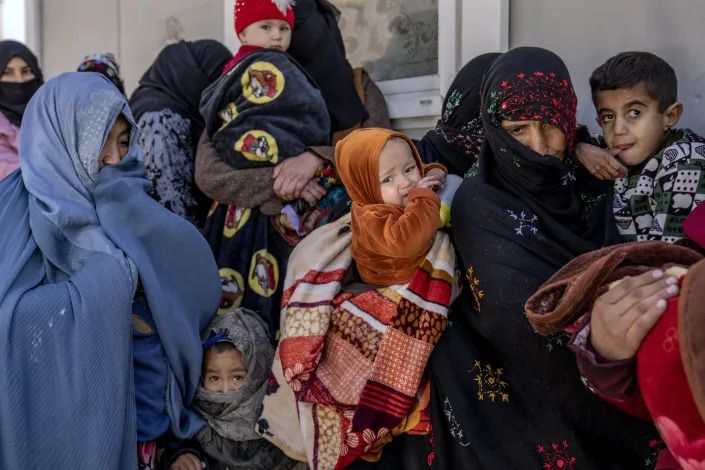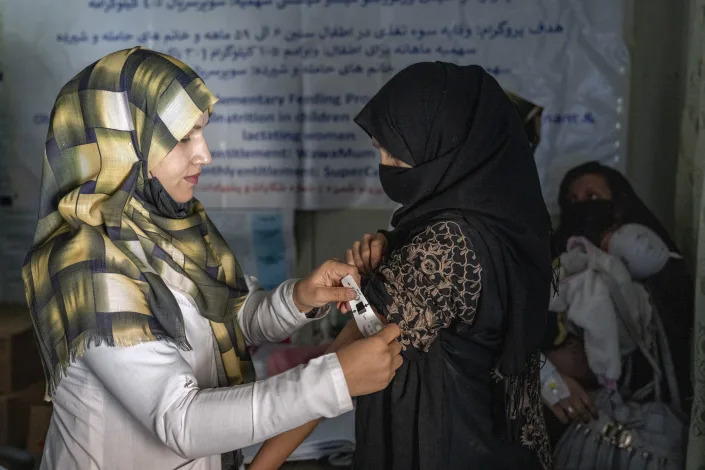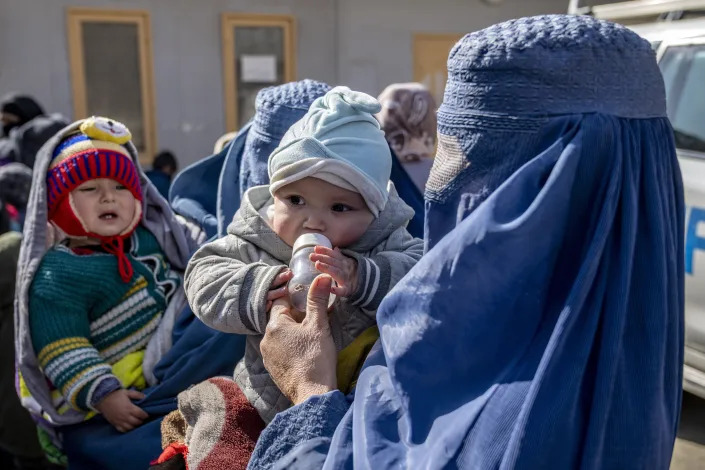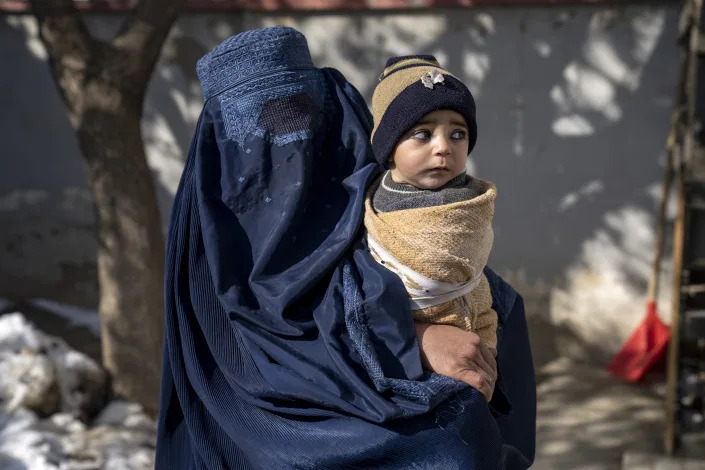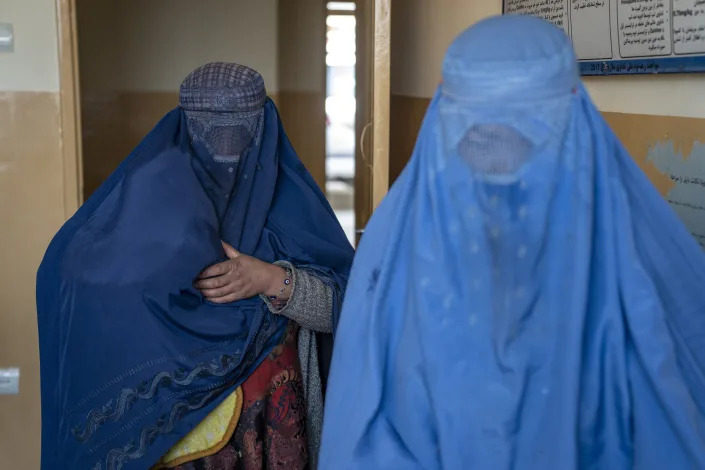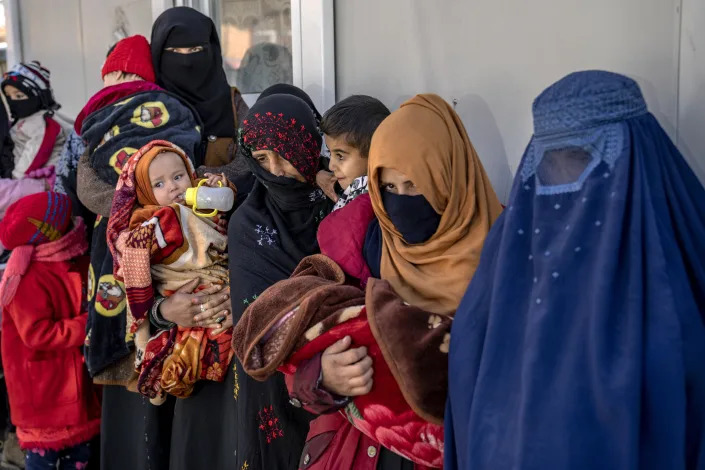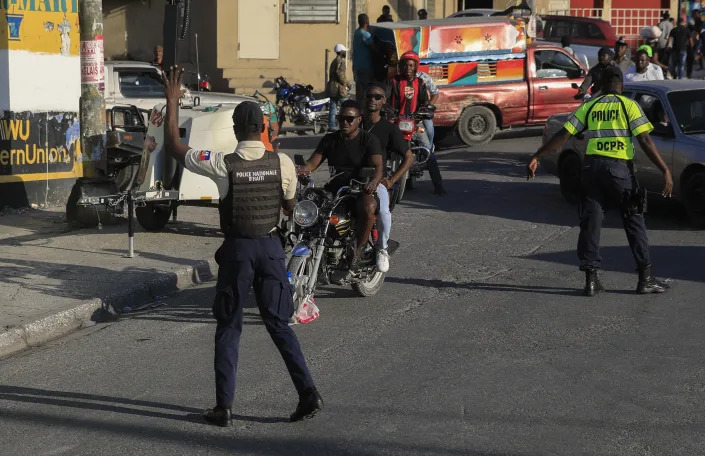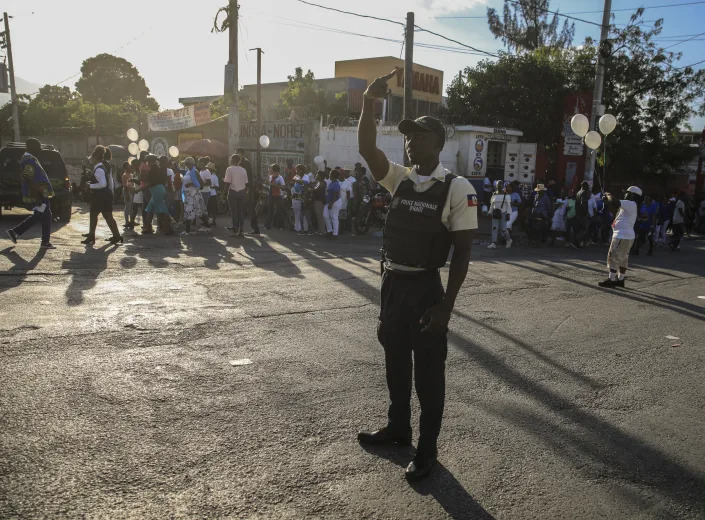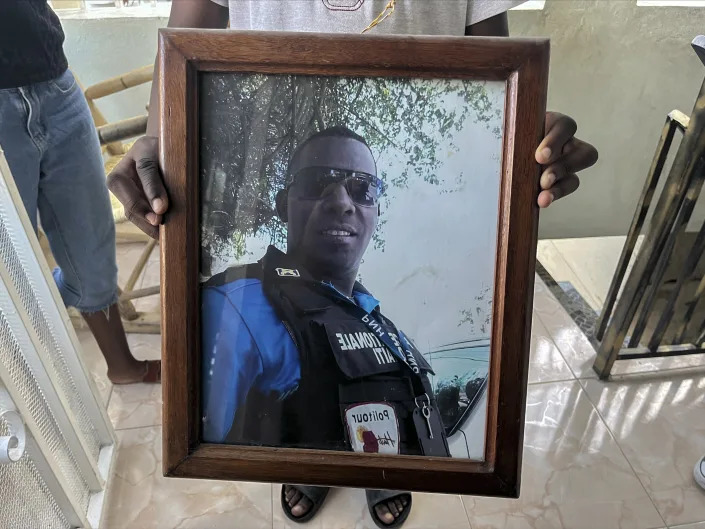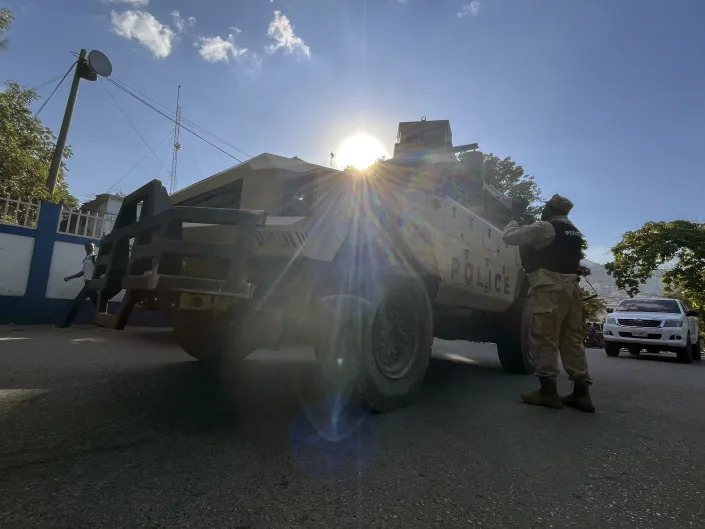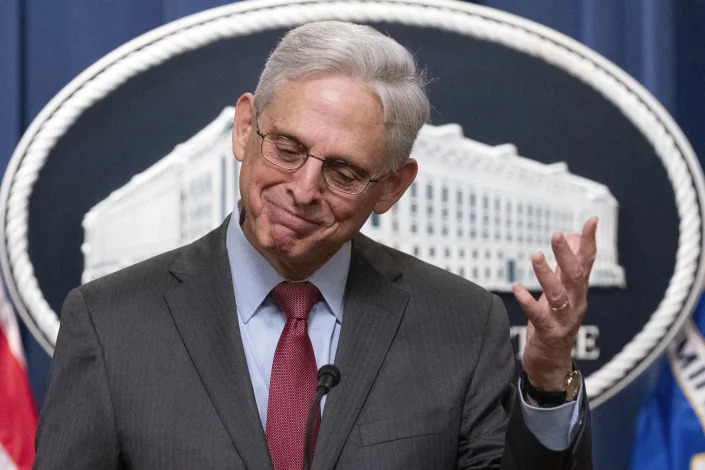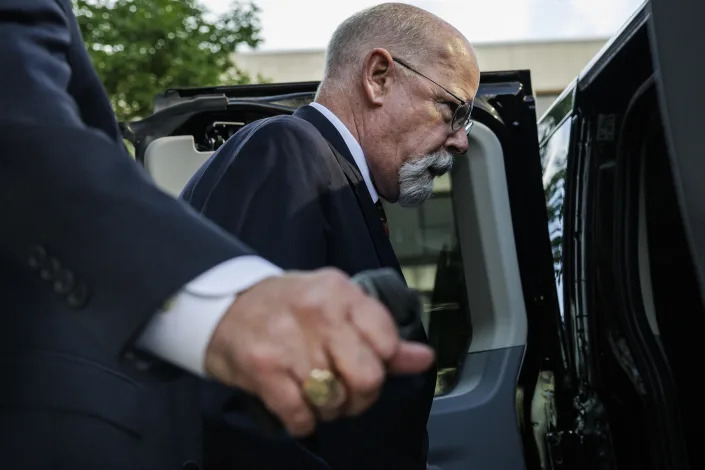TALIBAN FEMICIDE
UN food agency: Afghan malnutrition rates at record high

A mother with her malnourished child waits to receive help and check-up at a clinic that run by the WFP, in Kabul, Afghanistan, Thursday, Jan. 26, 2023. A spokesman for the U.N. food agency says malnutrition rates in Afghanistan are at record highs. Aid agencies have been providing food, education, healthcare and other critical support to people, but distribution has been severely impacted by a Taliban edict banning women from working at national and international nongovernmental groups. (AP Photo/Ebrahim Noroozi)
EBRAHIM NOROOZI
Thu, January 26, 2023
KABUL, Afghanistan (AP) — Malnutrition rates in Afghanistan are at record highs with half the country enduring severe hunger throughout the year, a spokesman for the World Food Program said Thursday.
The Taliban takeover in August 2021 drove millions into poverty and hunger after foreign aid stopped almost overnight. Sanctions on Taliban rulers, a halt on bank transfers and frozen billions in Afghanistan’s currency reserves restricted access to global institutions and the outside money that supported the country’s aid-dependent economy before the withdrawal of U.S. and NATO forces.
“Half of Afghanistan endures severe hunger throughout the year, regardless of the season, and malnutrition rates are at a record high for Afghanistan," said Phillipe Kropf, a spokesman for the U.N. food agency in Kabul.
"There are seven million children (under the age of 5) and mothers who are malnourished, in a country with a population of 40 million.”
Afghans are not starving to death, he said, but they have no resources left to stave off the humanitarian crisis.
Aid agencies have been providing food, education and healthcare support to Afghans, including heating, cash for fuel and warm clothes. But distribution has been severely impacted by a Taliban edict banning women from working at national and international nongovernmental groups.
“The ban has come at the worst possible moment," said Kropf. “Families and communities don’t know where their next meal is coming from.”
The WFP scaled up its delivery and distribution of aid in anticipation of a tough winter before the ban came in, planning to reach 15 million this month with emergency food assistance and nutrition support. While it is not directly affected by the ban, 19 of its NGO partners suspended operations in Afghanistan following the Dec. 24 edict.
The NGO ban on women workers has seen the suspension of 115 of 437 mobile health clinics, affecting 82,000 children, and pregnant and lactating women. The suspension of a training project is hurting 39,300 people, mostly women, while the pause of a school snack program has hit 616,000 students.
At a nutrition clinic in Kabul, 32-year-old nurse Anisa Samadi said most children and mothers will die without support from agencies like the WFP and World Health Organization. Their help is needed now more than ever, she told The Associated Press on Thursday.
“In the last five months I have seen the number of patients increasing. Three months ago we had 48 patients. Last month, we had 76 and this month so far we have 69 or 70, mostly we have twins who are so weak, while their mothers are also weak.”
Shortages of medicine alongside poverty and a lack of food means even a small illness can turn into a huge problem for many Afghans, she said.
Her colleague, 30-year-old nutrition adviser Sheba Hussanzada, said children at the clinic receive therapeutic food. But the children return with pneumonia, causing unhealthy weight loss. “Mothers are saying that they don’t have wood or any other way to keep their children warm at home. They don’t have enough food to feed them," she said.
First-time mother Fereshta, 24, visited the clinic because she doesn't have enough milk to feed her child. Her husband used to have a job, but now there is no work for him.
“Since the Taliban have come, the economic condition is so bad and people don’t have food to eat. People don't have three meals. If there weren't such a center to support us, I might lose my child," the young mother said.
The NGO ban has followed in a slew of measures restricting the rights and freedoms of women and girls in Afghanistan, and has drawn international condemnation and weeks of campaigning to get it lifted.
The highest-ranking woman at the U.N. Amina Mohammed said Wednesday she used everything in her “toolbox” during meetings with Taliban ministers in Afghanistan to try to reverse their crackdown on women and girls, urging Muslim countries to help the Taliban move from the “13th century to the 21st” century.
On Thursday, U.N. spokesman Stephane Dujarric, asked for Secretary-General Antonio Guterres’ reaction to rising malnutrition rates in Afghanistan said: “It’s yet another sign of the rapidly deteriorating humanitarian situation in Afghanistan we’re seeing in the midst of particularly harsh winter conditions."
___
Associated Press writer Riazat Butt contributed to this report from Islamabad.
